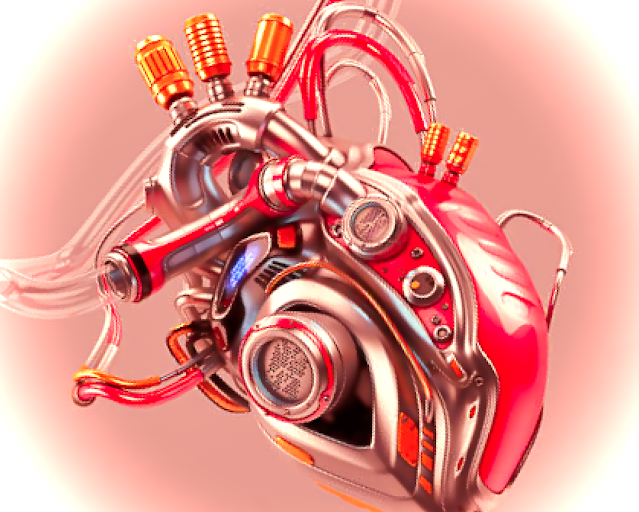Noninvasive Machine AI Interface Helps Reboot Heart from Sudden Death
On May 15th, 2021, Humanoido will tell you the extreme value of having an instantaneous noninvasive AI machine interface with a reporting link directly to the human heart on the biological human side. For those fleeting moments, Humanoido died, then administered life saving seconds of self rescuitation to fully come back to life.
For some unknown reason, the heart completely stopped beating, the noninvasive machine interface gave immediate data, and there was approximately 20 to 30 seconds of life to take action and immediately, somehow, reboot the heart or it would be permanent curtains and that's all that would be written.
On May 15th, 2021, Humanoido will tell you the extreme value of having an instantaneous noninvasive AI machine interface with a reporting link directly to the human heart on the biological human side. For those fleeting moments, Humanoido died, then administered life saving seconds of self rescuitation to fully come back to life.
For some unknown reason, the heart completely stopped beating, the noninvasive machine interface gave immediate data, and there was approximately 20 to 30 seconds of life to take action and immediately, somehow, reboot the heart or it would be permanent curtains and that's all that would be written.
During this 20-30 second time period, Humanoido was technically dead, and ironically had no feeling (no pain, itch, or nerve feelings) but blood still existed in the blood vessels and had a very short static supply of oxygen, stagnated and not circulating, that would sustain brain cognizance for only those few short seconds.
According to the University of California, Santa Barbara's UCSB ScienceLine website, the brain can withstand three to six minutes without oxygen before brain damage occurs. So time is paramount. It is also unknown after how many seconds all strength will subside due to oxygen deprivation.
It would be impossible to call 911 and wait ages for paramedics to arrive because by the time they arrived it would be too late. Humanoido immediately went into action, thinking extremely fast about what could be done that would have the greatest chance of successfully rebooting the biological heart from 0 beats per minute to a normal 70-80 BPM. Self resuscitation was vital, and Humanoido had to try everything possible that would be the most likely to succeed in the few seconds remaining.
Self resuscitation including striking the chest over the heart repeatedly, stretching to stimulate blood flow from existing circulatory system and get the blood moving back to the heart, and doing rapid forceful arm criss-cross exercise across the chest and heart region to jump start circulation and blood flow, and finally holding in breath and force pressurizing the body, all the time while keeping a watchful eye on the noninvasive AI interface and heart readings. The procedure was successful.
Humanoido comments, "During those seconds when the heart was not beating, there was no pain whatsoever. I remember thinking in a flash, oh, if dying is painless like this, I'm very surprised and it's a nice painless way to go."
